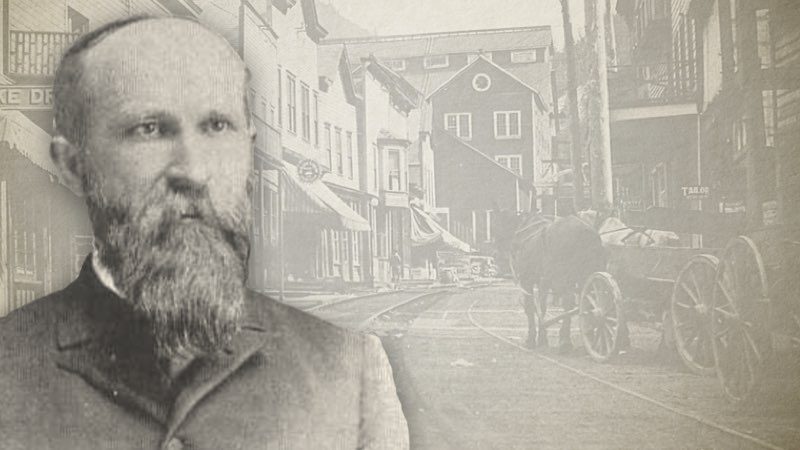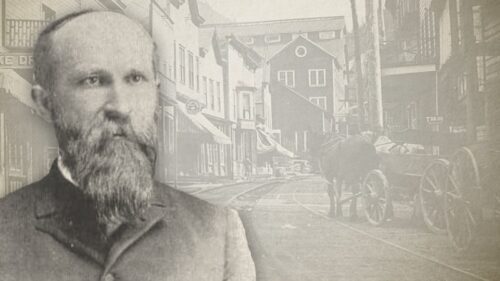-
Chapter 2: The Significance of Baptism
The advent of John the Baptist into the world was not an unexpected event. Although his birth had not been announced by angels, as was Christ's, yet God had declared, "I will send my messenger and he shall prepare the way before me."—Mai. 3:1. "Behold, I will send you Elijah the prophet before the coming of the great and dreadful day of the Lord: and he shall turn the heart of the fathers to the children, and the children to their fathers, lest I come and smite the earth with a curse."—Mai.4:5,6. Jesus declared that it was John of whom this was written. —Matt. 11:10. He also testified that Elias (Elijah) must first come, but declared that he had already come, and they knew him…
-
Chapter 3: The Definition Of The Church
Before proceeding further it will be necessary to examine into the meaning of the word "church." This word has come to be used in such a broad sense that it takes in and is applied to any religious organization, or society, whether a Scriptural church or not. By some writers it is made to "include the entire body of professed Christians." By others it means "the spiritual congregation, or aggregate of the regenerate, including the saints in heaven, the saints on earth and the saints yet to come." The general usage of the word at present justifies both of these definitions, but its Scriptural use does not, nor was the word so used in the time of Christ and his apostles. In fact the word…
-
Chapter 4: The First Church
The night before his crucifixion the Saviour formally assembled his disciples in an upper room in Jerusalem, and with them he instituted the Memorial Supper. This was the closing act of his life as far as it related to his church, and was well calculated to remind it continually of the responsibility which rested upon it as the executor of his laws, and the administrator of his kingdom. This Supper was to be perpetuated with his church, or churches, until he should come again, and would remind his servants continually of the charge committed into their hands, and their responsibility to him as their king. The ordinance itself is invested with increased interest when we recall the manner in which it was instituted, and the…
-
Chapter 5: The Expansion of the Church
A.D. 29. After the day of Pentecost the disciples went everywhere gladly preaching the word, while great success attended their ministry. In a very short time a second church was planted at Samaria, and soon another at Antioch. Persecutions were now inflicted upon the Christians everywhere, and Saul was on his way to Damascus, with authority to arrest men and women, and breathing out threatenings and slaughter against all Christians, when he was suddenly stricken down and made to cry out for mercy. Being converted to the Christian faith, he attached himself to the church at Antioch. Paul became at once enthused with the spirit of missions, and the church at Antioch, by direct command of God, set him and Barnabas apart to this work.…
-
Chapter 6: Heresies and Persecutions (A.D. 34-426)
Heresies and corruptions begun to creep into the churches very early in their history. Even during the time of the apostles there was a strong tendency to introduce Jewish rites into the Christian churches, and if the apostles had not learned that "eternal vigilance is the price of liberty," they did learn that the most untiring vigilance was necessary to preserve the churches in purity of doctrine and discipline. Man naturally desires a ritualistic service and would rather worship the seen than the unseen. Very early in the first century some churches were found drifting away from the simple principles which governed and controlled the true churches of Christ; they became corrupt in doctrine, and introduced innovations and false practices into their worship. It may…
-
Chapter 7: Waldensean Period (1260 Years)
"And the woman fled into the wilderness, where she hath a place prepared of God that they should feed her there a thousand two hundred and three score days. And to the woman was given two wings of a great eagle, that she might fly into the wilderness, into her place, where she is nourished for a time, times, and a half time, from the face of the serpent." (Rev. 12:6,14 "And when they shall have finished their testimony, the beast that ascendeth out of the bottomless pit shall make war against them and shall overcome them, and kill them." (Rev. 11:7) We now enter upon the wilderness period of the church, or what is more frequently called the Waldensean period. It is admitted that…


